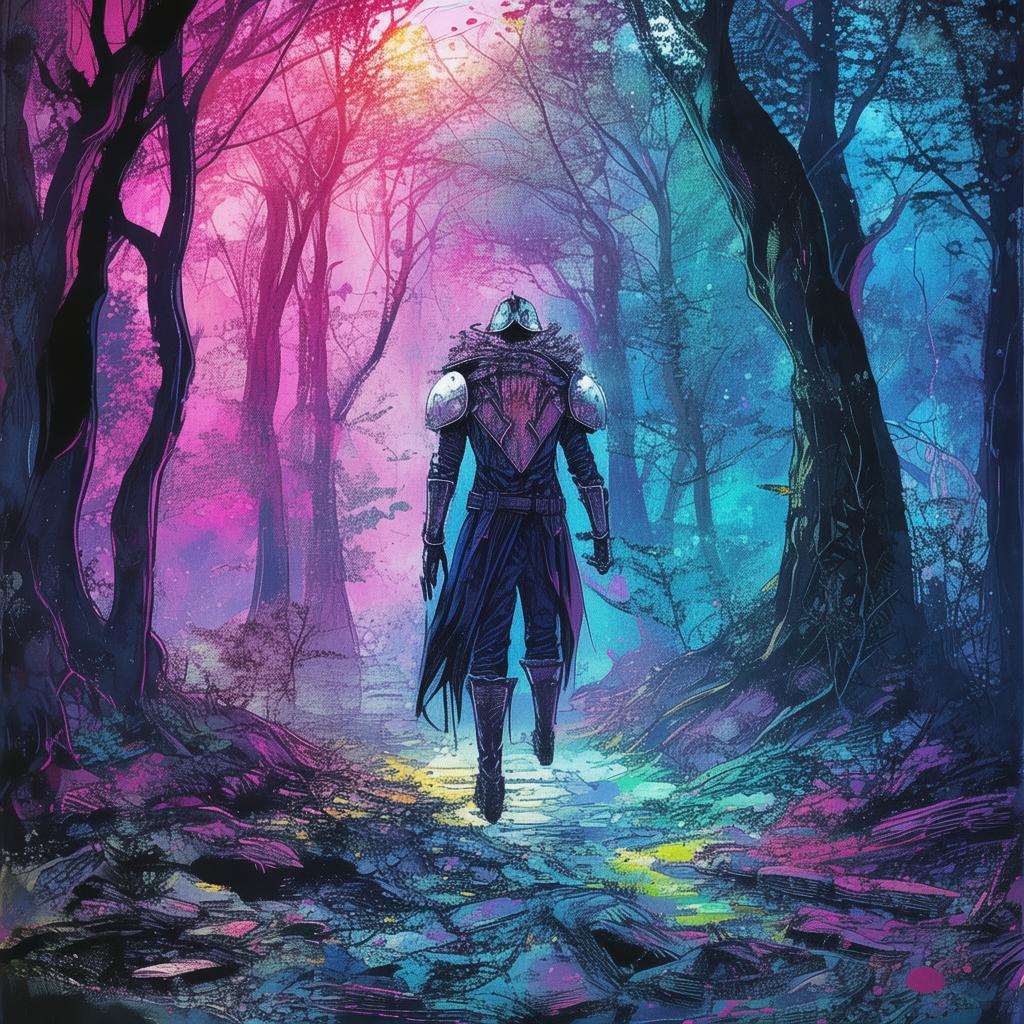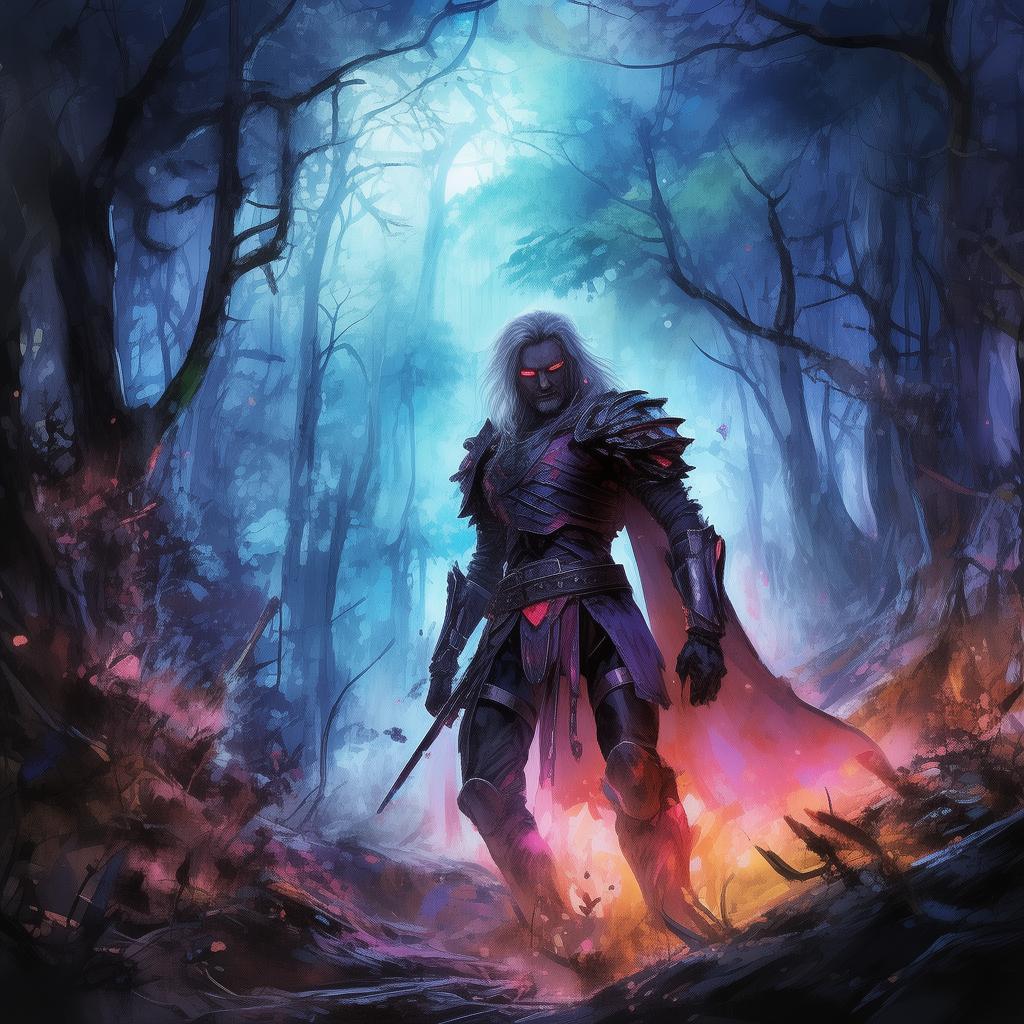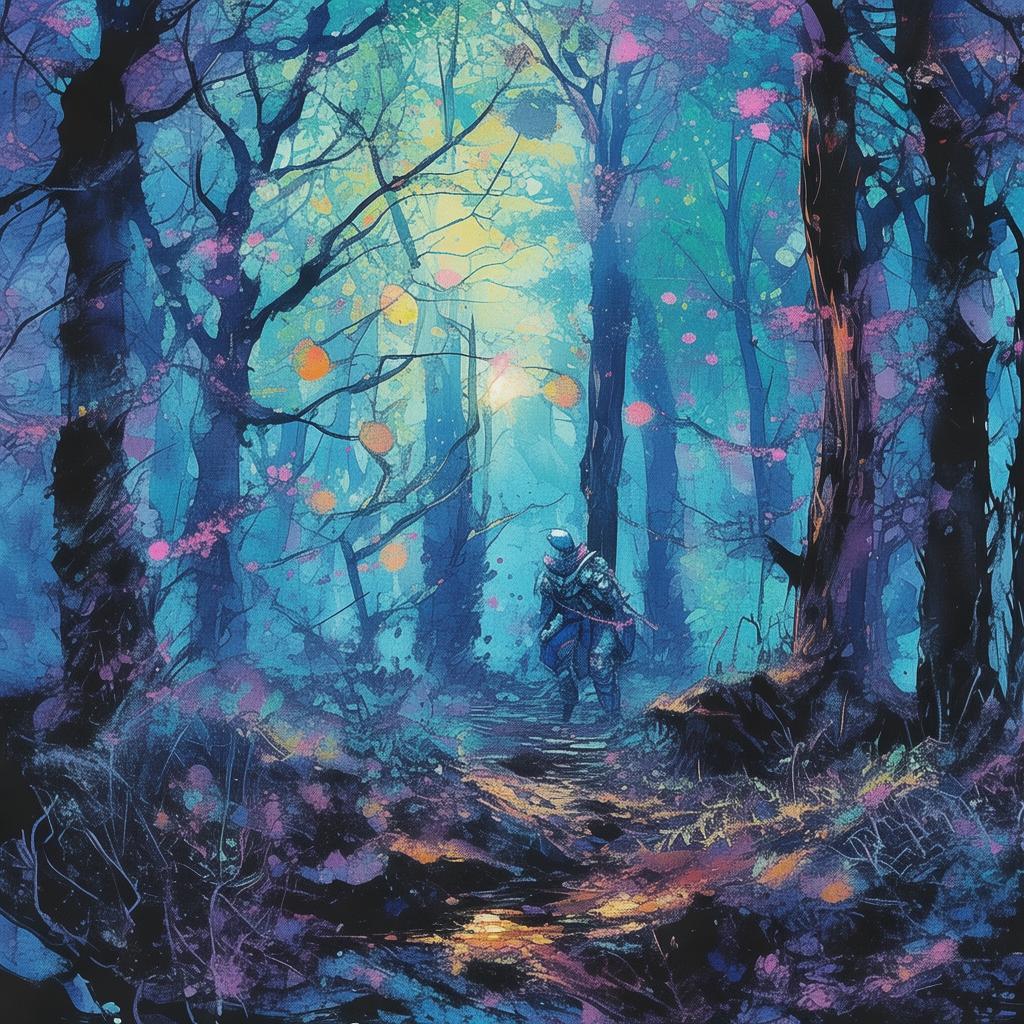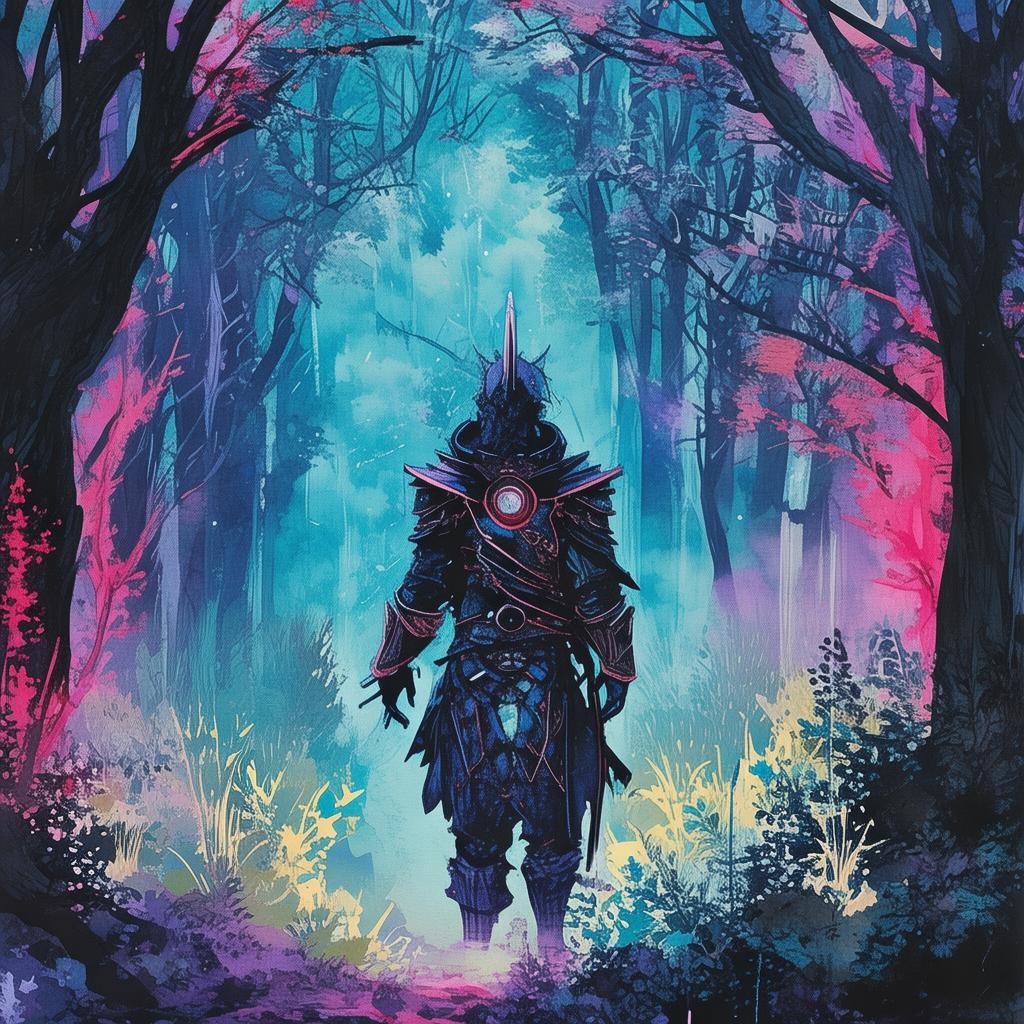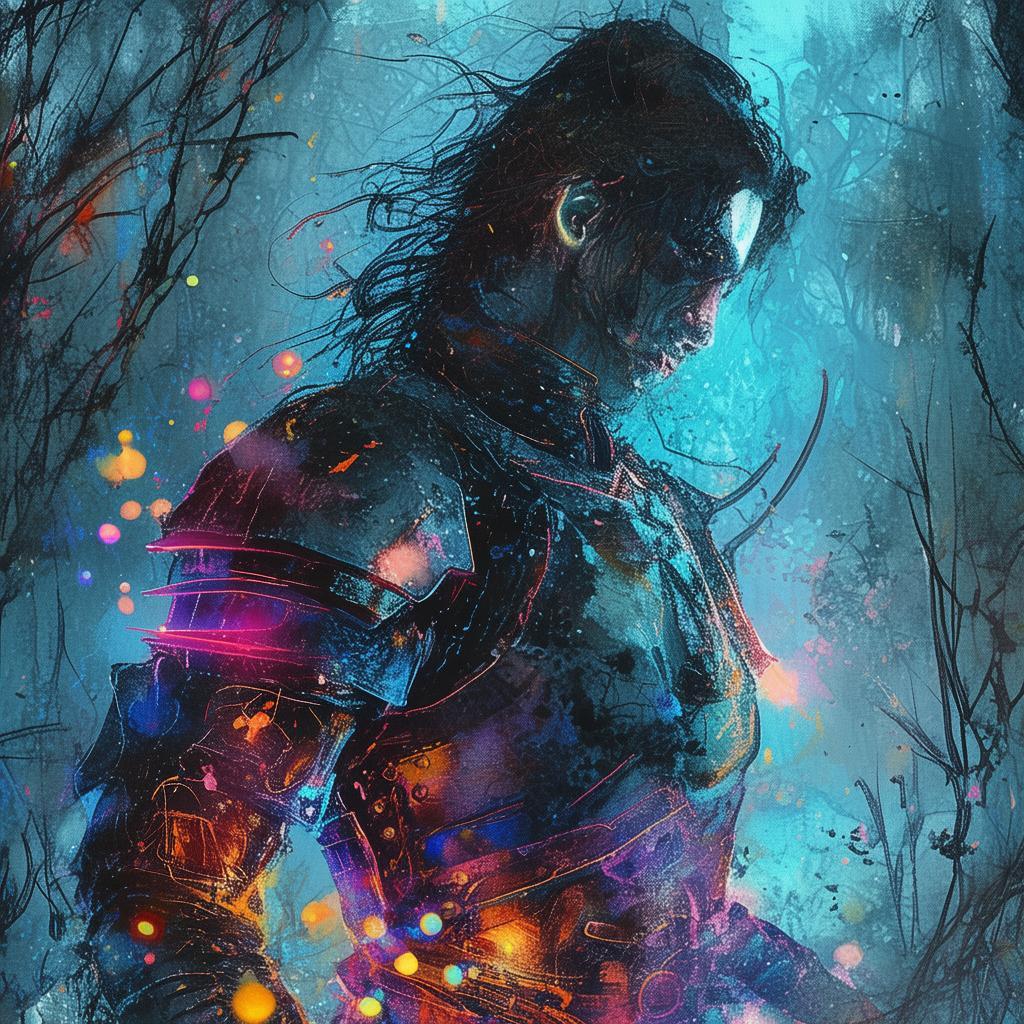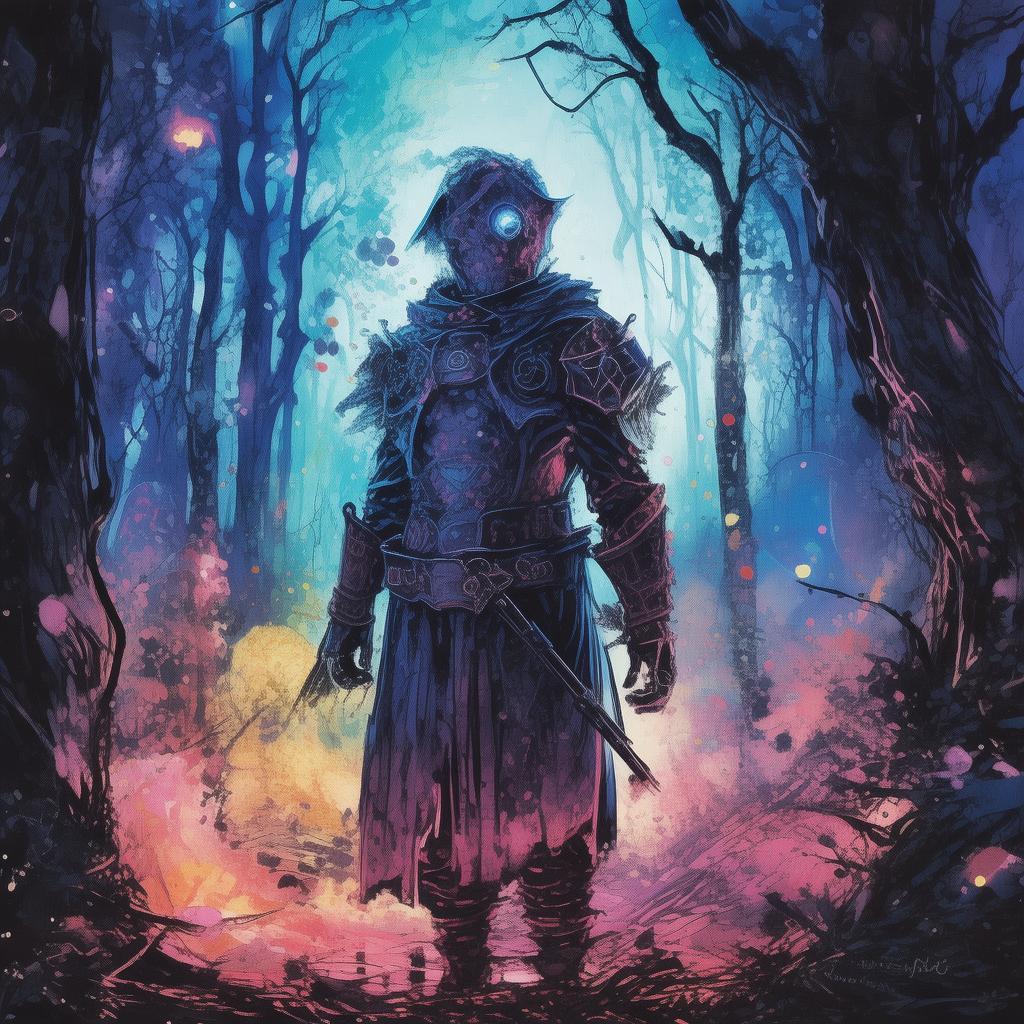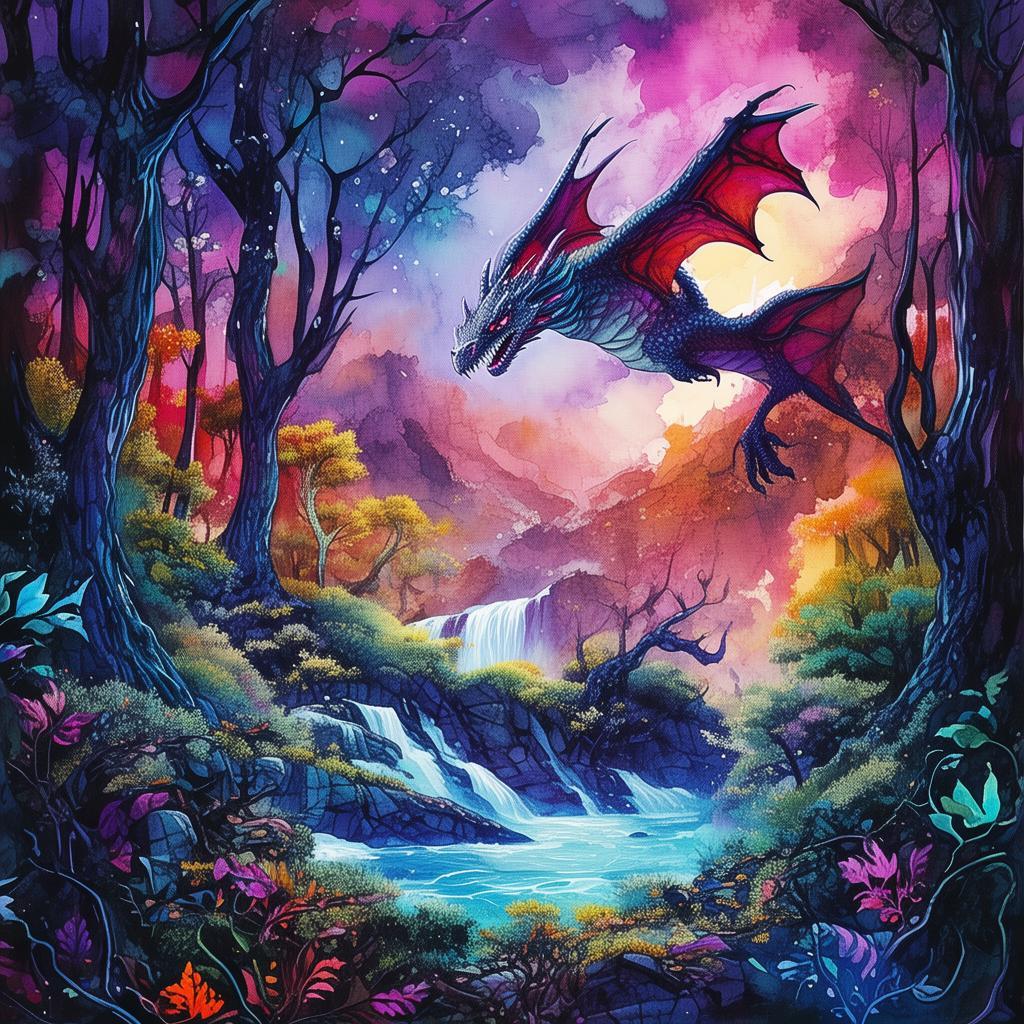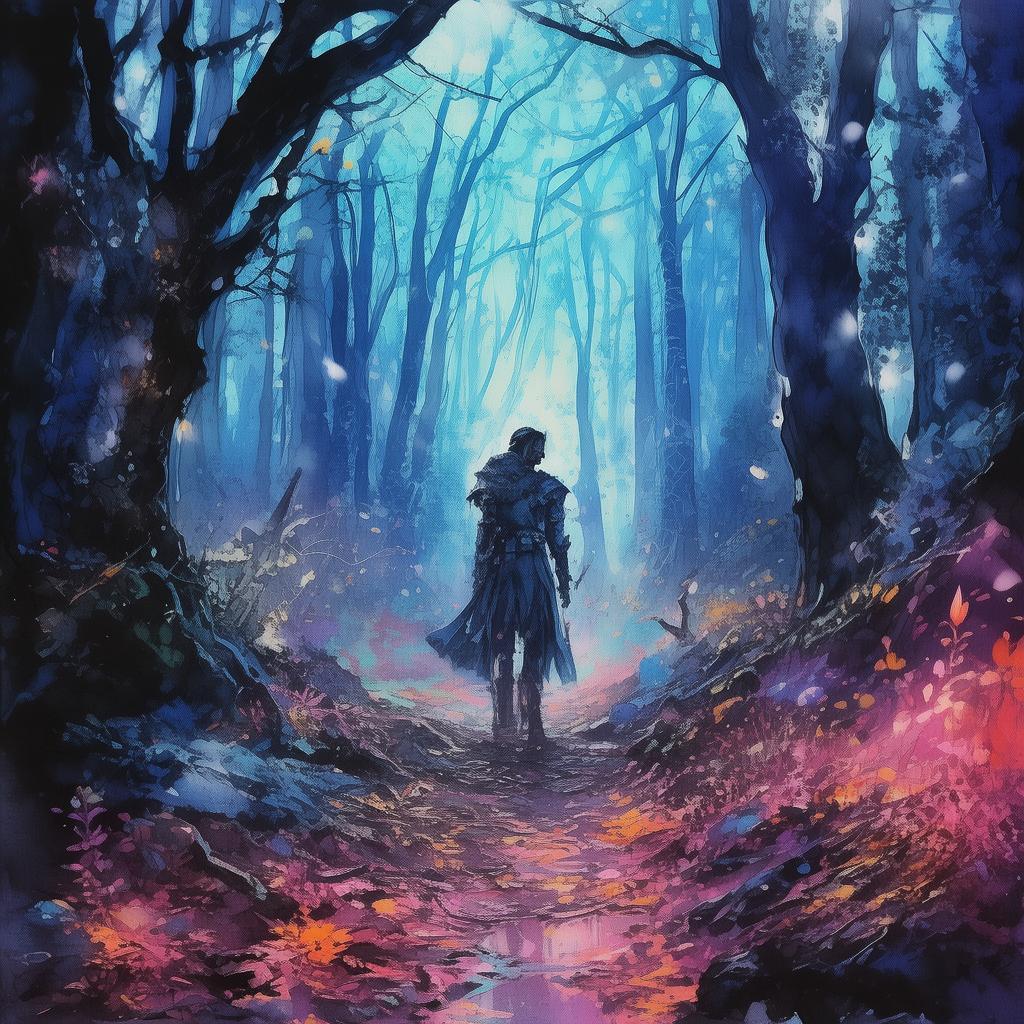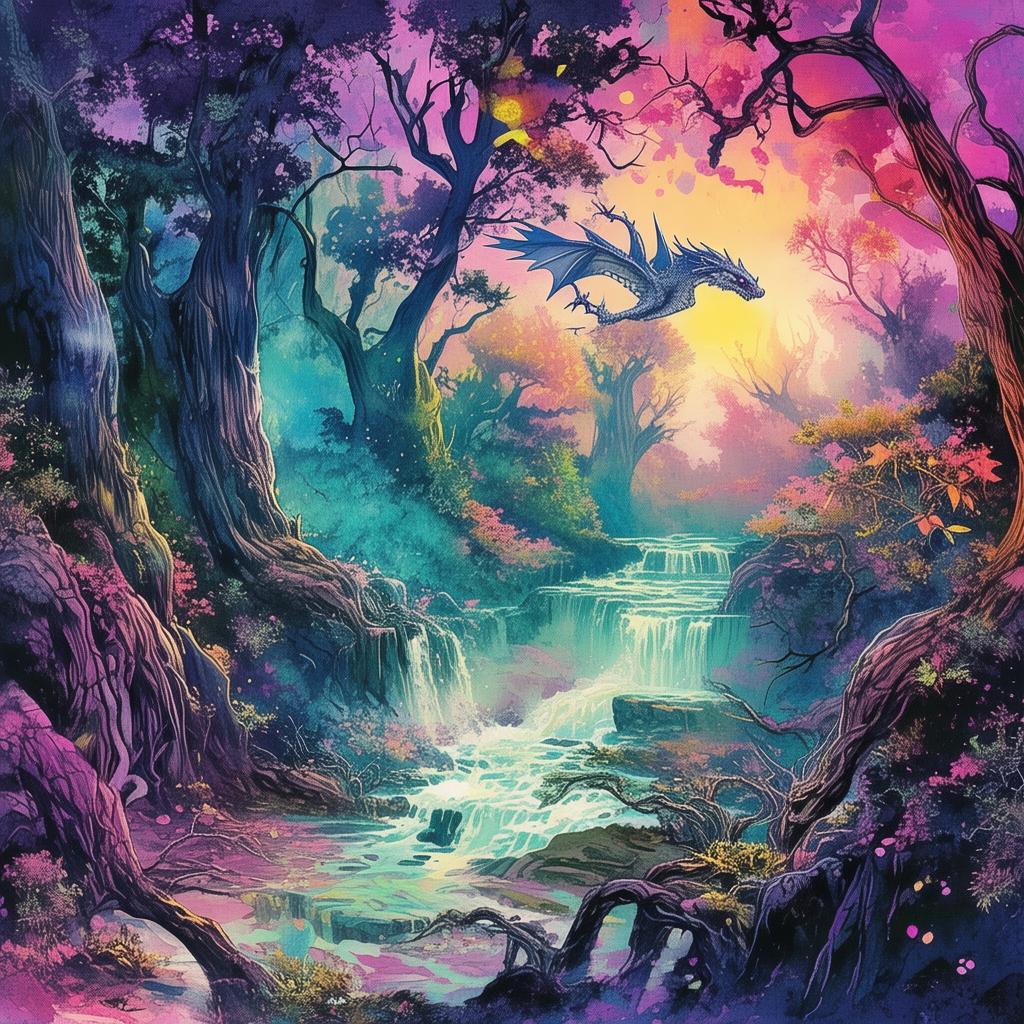The Echo of the Nomads: The Secret of the Golden Hooves
In the vast expanse of the Mongolian steppes, where the sky touches the earth, and the wind whispers tales of old, there lay a hidden secret that bound the nomadic tribes together. The Goat's Dance, a festival celebrated under the open sky, was more than just a celebration of the harvest; it was a ritual that wove the threads of tradition, heritage, and the very essence of the Mongolian spirit.
The story begins with a young nomad named Bataar, whose life was as untamed as the land he roamed. Bataar had grown up listening to the stories of his ancestors, tales of bravery and sacrifice, of the golden hooves that brought prosperity and peace to the tribes. The legend spoke of a time when a goat with golden hooves appeared, carrying with it a message from the heavens, a sign of the gods' favor.
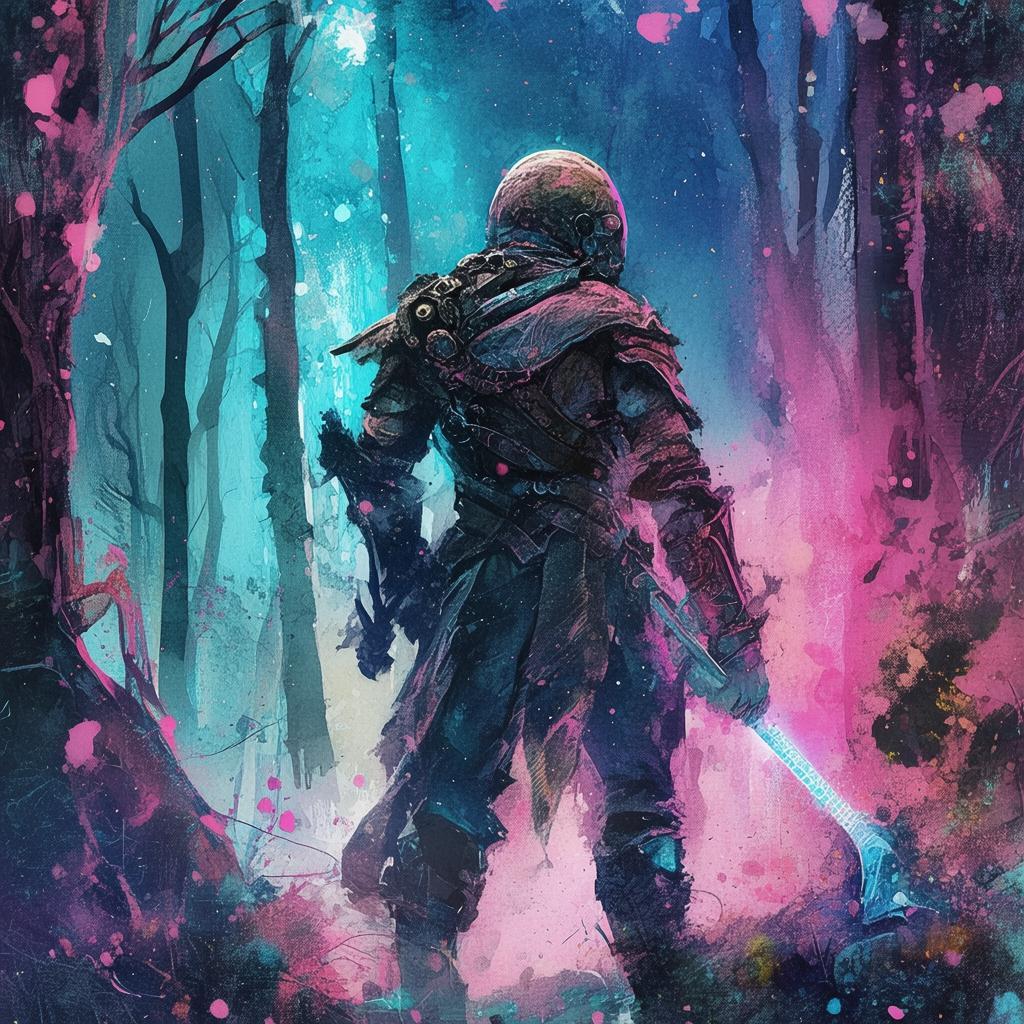
As the festival approached, Bataar found himself at the crossroads of his destiny. His father, the elder of the tribe, had been tasked with leading the dance, a role that was both an honor and a burden. The elder had grown weary of the festival's demands, feeling the weight of tradition and the pressure of upholding the ritual's ancient secrets.
"The goat with golden hooves is a myth," his father told Bataar. "The festival is just a dance of the people, a celebration of life. We must not be led by stories that have no substance."
But Bataar felt a pull, a whisper from the wind that spoke of the goat's reality. He knew that the festival held more than just songs and dances; it was a bridge to the past, a reminder of the nomadic life that had shaped his people.
As the festival began, the air was thick with anticipation. The camp was a sea of colorful tents, and the people were a mosaic of stories and dreams. The elder stepped forward, his voice resonating with the rhythm of the earth. The dance commenced, the goats were slaughtered, and the feast began.
But as the night wore on, Bataar could not shake the feeling that something was missing. He wandered to the edge of the camp, where the stars were a silent witness to his thoughts. It was then that he heard the whisper again, louder this time, calling his name.
It led him to an ancient stone, covered in carvings that told of the golden hooves and the ritual that brought them. Bataar's heart raced with a mix of fear and excitement. He knew that the truth was close, hidden in the shadows of the past.
The next morning, as the sun rose, casting a golden hue over the steppes, Bataar found himself face to face with the goat with golden hooves. It was not a myth, but a living symbol of the nomadic spirit. The goat spoke to him, its voice a gentle breeze that carried the wisdom of the ages.
"The golden hooves are not just a legend," the goat said. "They are a gift from the gods, a sign of their favor. But the true power lies not in the hooves, but in the hearts of the people. It is your duty to lead the dance, to remind your people of the strength that comes from unity and respect for the land."
Bataar's heart swelled with purpose. He returned to the camp, his eyes filled with newfound determination. The elder, seeing the change in Bataar, stepped aside, allowing the young nomad to take his place.
The Goat's Dance resumed, but this time, it was different. The people danced with a newfound understanding, their movements a testament to the strength of their heritage. As the ritual came to a close, the elder turned to Bataar, a smile of pride and respect on his face.
"The golden hooves have returned," he said. "Thank you, Bataar."
Bataar knew that the legend was not just a tale, but a living truth. The Goat's Dance was more than a ritual; it was a reminder of the nomadic spirit that had sustained his people for generations. And as he led the dance, he felt the weight of tradition, the power of heritage, and the unyielding spirit of the Mongolian steppes.
The legend of the Golden Hooves lived on, a testament to the resilience of the Mongolian people and the enduring power of their traditions. And Bataar, the young nomad who had once questioned the old ways, had become a guardian of the legacy that was passed down through the ages.
✨ Original Statement ✨
All articles published on this website (including but not limited to text, images, videos, and other content) are original or authorized for reposting and are protected by relevant laws. Without the explicit written permission of this website, no individual or organization may copy, modify, repost, or use the content for commercial purposes.
If you need to quote or cooperate, please contact this site for authorization. We reserve the right to pursue legal responsibility for any unauthorized use.
Hereby declared.
